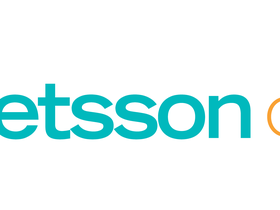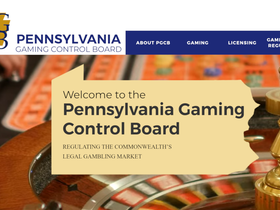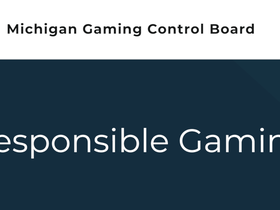One month ago, Ontario became the first Canadian province to offer gamblers a regulated market in which to play. This means private online poker rooms, casinos and sportsbooks have all had to meet stringent criteria laid out by the province’s regulators — the Alcohol and Gaming Commission of Ontario (AGCO) and iGaming Ontario (iGO) — in order to go live and accept real money wagers. These guidelines and requirements help create a safe and fair environment for players.
The Responsible Gambling Council (RGC) works in Canada to help the regulators ensure that each online gambling operator is meeting the highest possible responsible gambling standards.
Ahead of the regulated market launch on April 4, it was announced that the RGC would be ensuring that all online operators will meet the RG Check standards as outlined by the RGC.
The iGO released a gambling primer to help new players acquaint themselves with the online gambling options available within the province.
We chatted with Tracy Parker, Director of Standards and Accreditation at RGC, to dig into the Council’s remit and how they help players in Ontario stay safe at the virtual tables.
Please tell our readers a little bit about the RGC and your position within it.
RGC is committed to bringing together all sides to ensure sustainable gambling spaces are in place and to help those at risk because we believe gambling should never come at a human cost.
The Responsible Gambling Council (RGC) is an independent non-profit organization dedicated to preventing and mitigating gambling harm.
For 40 years, RGC has worked to reduce gambling risk by creating and delivering innovative awareness and information programs in Ontario and beyond. We promote the adoption of improved play safeguards through best practices research, standards development and the RG Check accreditation program. RGC is committed to bringing together all sides (operators, regulators, treatment and community agencies) to ensure sustainable gambling spaces are in place and to help those at risk because we believe gambling should never come at a human cost.
In my role as Director, Standards and Accreditation, I lead the development and execution of the RG Check accreditation program, bringing a collaborative approach to how the standards and accreditation can improve the player experience.
Please tell us more about your commitment to player protection and what that means for gamblers in Ontario?
RGC employs a 360 approach to preventing gambling harm. It is important to involve all stakeholders in the advancement of responsible gambling standards and best practices. We work with all sides to ensure that robust consumer protections continue to be a priority. Evidence-informed approaches are crucial to the effectiveness of RG, which is why leveraging research and data is so important.
RGC has a wide range of prevention and awareness programs for different segments of the population. We know that different groups require tailored messaging around safer play strategies, so our programs are based on best practices and backed by research. From youth and young adults to the general public, seniors, and certain ethnocultural groups, our awareness programming is designed to provide relevant and effective information for specific audiences. You can learn more about our prevention programs here.
Having RG Check embedded in Ontario’s licensing agreement will make a contribution to building a culture of responsible gambling here in Ontario — one that emphasizes continuous improvement and makes player protection and sustainable play a priority. We are excited to continue bringing Ontario players evidence-based and impactful player protection measures.
I would like to know more about your RG Check program. What exactly are the 9 standards and 48 criteria for online gambling sites? How do you check they have met these standards and how often do you check that they continue to meet these standards?
The foundation of RG Check is the RG Index, a set of standards and criteria that was originally developed by RGC’s Center for the Advancement of Best Practice in consultation with a broad set of global stakeholders from policymakers to gaming providers, from players to problem gamblers.
The full content of the Standards and Criteria for both RG Check iGaming and RG Check land-based can be found on our website.
The RG Check Standard Areas are:
- RG Policy, Strategy, and Culture
- Employee Training
- Self-Exclusion
- Assisting Players
- Informed Decision Making
- Marketing Communications
- Accounts and Payments (iGaming) / Accounts to Money (Land-based)
- Site and Product Design (iGaming) / Venue and Game Design (Land-based)
- Stakeholder Engagement (iGaming)
This comprehensive range of Standard areas requires operators to show an awareness of the complexities of responsible gambling safeguards, as well as a robust approach that includes knowledge sharing, player protection, and access to help. The Criteria provide benchmarks that define the standards in greater detail and guide the collection of information throughout the accreditation process which includes documentation collection, employee surveys, player surveys, site assessments, and employee interviews.
Accreditation is granted for three years, after which operators may apply to be re-accredited for a further three-year period. As part of the process, operators are required to submit an annual update regarding changes to their RG policies and procedures.
I can see on your website you link to the UK Gambling Commission (and others) under your global learnings section. I think it’s great that you are looking beyond your own borders to how other regulators work. Who do you think does a good job of keeping operators accountable?
Different kinds of players need different kinds of tools and information at different times in the player journey. The key is offering a variety of tools to players & making sure the tools are accessible and easy to use.
So many actors have a role in ensuring player protection — both internally and externally. Internally, the Board of Directors and executive management set a tone from the top and need to be actively engaged. Layers throughout the organization including internal audit, compliance, and risk management functions make an essential contribution. All employees deserve to work in an organizational culture that prioritizes player safety and empowers them to have meaningful interactions with players; employees are increasingly valuing these skills and this kind of commitment.
Externally, investors are gradually taking a closer look at RG’s performance as a material issue. We also work with all layers of government including municipal governments and local public health agencies which are taking operators about player protection. All of these groups, as well as players and regulators, need to continue asking for transparent disclosure of meaningful measures of player health protection.
Many companies have been fined in the recent past by other gaming regulators, such as the UKGC including 888, Entain, and Flutter, all of which have received licenses to operate in ON. Do you and the ON regulator take into account previous transgressions in other markets when considering licensing? Does it lead to additional scrutiny moving forward?
I’m not going to speak on behalf of the AGCO. RGC does not distribute licenses in Ontario or monitor for compliance with the AGCO regulatory standards. RG Check measures operators against our set of standards and criteria, some of which overlap with regulations in other jurisdictions that may have led to the fines that you’re referencing.
Operators must achieve a score of 50% in each Standard Area and 70% overall to pass. Through the accreditation process, we independently assess operators through a comprehensive audit process that’s consistent for all operators.
The ON regulator wants at a minimum: deposit limits, time limits, loss limits, and gaming limits as functional RG tools from each operator at launch. In your opinion, what is the most effective RG tool?
RG Tools can take many forms: various time and money limit-setting tools, risk assessments, play history, self-exclusion, blocking features, cool-off periods, marketing options, etc. The most effective tool will depend on many things including the player risk level. Different kinds of players need different kinds of tools and information at different times in the player journey. The key is offering a variety of tools to players and making sure the tools are accessible and easy to use. When we drive our cars, we don’t have to choose between seatbelts, guardrails, airbags, speed limits, etc.
As you see them, what are the main benefits a regulated market brings?
The real, lasting impact of a regulatory market is the opportunity for meaningful collaboration with the industry to build a responsible gambling culture.
A regulated market that prioritizes consumer protection and platform safeguards obviously allows for the creation of a regulatory framework that includes monitoring and enforcement. However, the issue of gambling harm prevention will not be solved only by compliance measures alone. It’s too complex. We need both sticks and carrots. I believe that the real, lasting impact of a regulatory market is the opportunity for meaningful collaboration with the industry to build a responsible gambling culture.
The rules for affiliates promoting operators in the province are stringent. If an affiliate cannot promote the ways these sites incentivize players, then what role do you see the affiliates filling? Do you think affiliates do more harm than good to the industry/players?
Managing the risks of gambling is the key social responsibility of all the actors in the gaming industry. The future of the industry depends on how we all support players and make efforts to eliminate the incidences of harm caused by gambling in society. Affiliates offer value to players and they need to be accountable for doing so in a responsible way.
What is your main RG advice for players logging into online gambling sites?
There are many safety tips, but basically — Make sure playing stays fun.
- Learn more about how the games work and about tools that can help manage your play
- Play with money you can afford to lose; use tools to keep you on track
- Don’t gamble when depressed or intoxicated
- Don’t gamble when you’re upset or stressed
- Limit your alcohol and/or cannabis intake while gambling
- Manage your time and take frequent breaks; use tools to help with that
- Don’t try to win back what you’ve lost
- Balance gambling with other recreational activities and priorities in your life
- Seek help or make a change if gambling is causing you concern
For operators wanting to offer more ways for players to gamble responsibly, what practical steps can they take?
Follow the recommendations provided by RG Check. In addition to providing a wide variety of accessible and easy to use tools, here are some foundational steps:
- Establish accountability for the program that will set a foundation for the development and execution of all program elements. Have a strategy.
- Build and maintain an RG culture: top-down, bottom-up strategies and accountabilities. RG needs to be integrated into multiple departments, aligned with organizational goals, and supported with comprehensive employee training.
- Know and Engage with your players — recognize that all players have the potential to experience gambling harm and consider the information needs of low-risk and moderate-risk players. Prevention is key. Provide specialized and segmented programming, particularly for unserved populations. Develop promotional campaigns for responsible gambling and harm prevention that are just as sophisticated as promotional campaigns for products. Make tools easy and fun to use; incentivize positive play behaviors.
- Engage, collaborate, and learn — Collective and collaborative efforts are required amongst all agencies associated with player health. The successful development, execution, and assessment of many of the initiatives outlined above will rely on partnerships and collaborations across the industry, within the RG field, and in the broader community. Invest in research.
- Seek to continuously improve. Research and data will be increasingly valuable as Ontario goes through the beginning phases of a new market. Operators offering data sets to the research community will help to create benchmarks and updates to existing best practices so that the industry can be proactive rather than stationary.
If you would like to see one thing happen from an RG perspective in the online gambling industry what would it be?
When all sides work together, it creates a more holistic, public health approach to minimizing gambling harms and protecting players and communities.
From an RG perspective, it would be collaboration. When all sides work together, it creates a more holistic, public health approach to minimizing gambling harms and protecting players and communities.
For example, addressing issues associated with financial harm (which often leads to other types of harm as well as the harm that can extend beyond the player to family, employers, and communities) must involve multiple stakeholders such as financial services, payment services, credit counselors, etc. Expanding the conversation would create innovative approaches and lead to more lasting, meaningful change.




